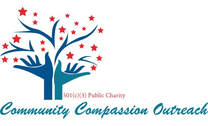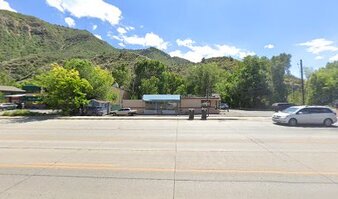|
On Friday, September 30, 2022, people residing at the only encampment sanctioned by La Plata County, Colorado, willingly complied with county sheriffs to vacate their tent homes and moved to nowhere.
Some people reluctantly left their belongings that will be tagged and placed in the county’s storage for 30 days for people to reclaim their possessions. Others chose to store their things in storage spaces wherever there was availability. While others remained to test the resolve of the county to move them … but to where? In the five years that I’ve been advocating for people in our community who are living homeless, the politics between the city and the county continues to play out. The City/County Coordinated Council on Homelessness and other agencies have tried to work with officials to designate safe space for people to camp, given the serious shortage of available, affordable low-income housing. When we as a small community famous for its tourism that Durango attracts cannot provide space for more than 150 tents that was set up at Purple Cliffs, it says that low-income and unhoused adults, youth, children and families are not this society’s concern. We’re in October with thunderstorms and temperatures lowering in the evenings. People have frozen to death in past winters and some have had frost bites, injuries from slipping on ice or falling down steep mountainsides. When people have nowhere to go, when they have no access to a toilet, sink and shower, we cannot expect a human being to be clean, well groomed and normal—like those of us who are safe in our own rooms. In fact, we cannot blame or fault anyone living in the woods and along cliffs of the Rockies to be sober. Self-medication is all that is available from the hoardes of illegal drugs, marijuana and opioids pushed by dealers who feed off desperate folks. Alcohol is easy to get here with many distilleries, bars, liquor stores that serve the broad community of vacationers. There are plenty marijuana dispensaries for people who say they use weed for medicinal purposes, and it’s been known throughout Colorado that street drugs including marijuana are laced with Fentanyl. When people have nowhere to go, they survive as they’ve learned to do over the years of experiencing homelessness. But, what makes Durango the place where people want to live. The scenic beauty is definitely the reason most people like living here, but cost of living and the rent rates are not enough obstacles for some individuals to choose our community as their home. Despite the rejection of some local residents and their animosity toward the homeless population, a person has the Constitutional right to live anywhere in the United States where they choose. Community Compassion Outreach can only fill gaps in services as it is possible and while we rely on donations and grants. The root of many who find themselves unable to earn a living and needing to live out of doors may be their ability to survive despite fear, depression, anxiety, disassociation from community. That survival is described to be mental health where people may or may not be diagnosed for mental illness, yet their behaviors are evidence of a mental health disorder. This is why Recovery Empowerment Support Services Team is created. RESST program is one way we can address many of the challenges that people experiencing homelessness face every day they are without safe shelter or a stable home. Peers of lived experiences with mental health are trained to know about alcohol addictions, ethical practices, confidentiality, motivational interviewing, trauma-informed care and substance abuse. Either trained peers have recovered from addictions or they have co-occurring mental health disorders. When the human body is suffering from environmental exposure, or from an assault, or lack of sleep, or injuries sustained from a fall, the ability to cope often times is not easy without resources of community and without a person to trust. This is what I’ve come to learn since early 2017. Training by evidence-based people whose life experiences have made a difference in the lives of others is what CCO believes it can use to help improve another human’s way of life. There are multiple ways toward recovery from substances. There must be compassionate others to help guide, coach, motivate, encourage and empower folks who don’t have stable housing and who are feeling hopeless. CCO RESST program is to offer hope where there is no hope. To provide empathetic service that exceeds the capacity of counselors and therapists. We can help people get identifications, refer them to housing resources, collaborate with other service providers to fulfill the needs that our recipients want. We cannot do this alone. We cannot meet everyone’s need. We can, for certain, be the person who will listen and be concerned when called. We can provide our own life’s experiences that offers hope and empowerment. Much we can do, but we want to do it in partnerships with our immediate community, with our local lawmakers, healthcare and food providers. We at CCO will reach out to let you know that we are in recovery with skills that may be just what you need to make recovery possible for you. “Many people in recovery face great fear in entering or reentering community life. We must be in a position to say, “Take my hand and I will take you there.” To offer those words, we must first know that community terrain and have connections with its people and institutions.” – William White My name is Donna Mae (Goles) Baukat. Stephen M. Baukat is my husband of almost 40 years in late 2021. The first thing you should know about me is that I am transparent, and I love to share my story of how I have been recovering since the late 1960s from mental health issues. The reason I am being open about my recovery is that my story might help someone who may take time to listen.
A story always starts with a beginning — mine starts as an infant. In fact, because I was conceived out of wedlock, my mother held me responsible for her marriage to my father. Both have passed. I was never open to strangers about the physical and emotional abuse I experienced as a child, nor have I talked about the neglect. In Y2004, my mom admitted that she married dad only because she was pregnant and failed in attempting an abortion. She said she went to have an X-ray complaining of stomach pains and knew that she should have mentioned her pregnancy to the technician. She told me she could not hold me or coddle me as a mother would her newborn. Her anger toward me was about her having to marry someone she did not love. My father did not know how to express affection. Mom was mainly the reason my dad whipped me with a belt. She might be arguing and fighting with him about how Donna Mae did not do the family’s ironing or folded the clothes or cooked rice or whatever. I grew up with low-esteem and an over-achiever. Being first on the honor roll was not good enough for mom and dad when I attended an elementary parochial school for girls in Honolulu, Hawaii. The Canadian Sacred Hearts Nuns were the kindest and gentlest people I have ever known. They never knew that under my mid-length, pleated navy-blue skirt were belt marks, or bruises on my arms, from a punishment the day before. They nurtured creativity in me. They listened to my ideas without using their hand across my head for talking too much, and when I asked many questions. Actually, I ran away from home every school day to leave the unhappy home I was in. The 14-mile bus ride in the mornings to school near Downtown Honolulu gave me a chance to complete my homework on time. It helped me escape the shouting voices and slammed doors by a mother who never had love or affection in her own childhood. Dad was always busy in some type of project in which he would not look up when asking him a question. His reading a paper at the kitchen table could never be interrupted, but I took risks for what I needed for school and he invariably told me, “Go ask your mother”. That was how I remember my parents. Since I am their oldest child, I was responsible for keeping the house clean. I learned to cook when I was seven or eight years old. On February 12, 1958, mom with my four siblings were on a plane leaving Honolulu airport for San Francisco where my father had found a good paying job in Southern California. I recall looking out the window as we taxied by all of 30 cousins, aunts and uncles, and grandma with grandpa waving goodbye. The one thought I kept deep inside my mind and heart was not grief of leaving them. I was feeling relief! That feeling of relief came as the airplane took off and we were flying over Waikiki and Diamond Head then heading to the California coastline. Grateful that Tata Cerillo would never touch me again. I was certain to be age 13 and not worrying anymore to be in his home to babysit me and my sister. Most of the time with Tata was a guise to ask for money, which my mother would get when she came to get us. I married one year after my 1962 high school graduation. Walt became a Marine Corps drill instructor when our third child was born, which was after he returned from the Vietnam war. He was a heavy smoker. Nearly every weekend he got drunk on a case of Coors beer. My parents were not alcoholics, but my dad behaved as one. He was a good father, but his wife was last on his list. Our children were born nearly 19 months apart and unplanned. By the time I was 28, we were divorced — not soon enough. I was treated in a mental hospital for major depression a few times with attempted suicides. The last attempt harmed me with 2nd and 3rd degree burns over 30% of my body. Nine shock treatments after I was healed, and with various medications, led to hearing my psychiatrist telling me that my depression stemmed from the emotional and physical trauma I experienced as a child. A number of counseling and group therapies gave me an understanding of those months spent with depression, high anxiety and self-condemnation. I’ve spent five decades of recovery for mental health conditions through psychiatric medicines and behavioral modification treatments. My lived experiences and the lifetime of illnesses, spine surgeries due to auto accidents, and a disability with Fibromyalgia since 1989 are a testament to my survival. I will reach my 77th birthday at the end of 2021 with the reflections of overcoming adverse childhood experiences, poverty as a child and the knowledge that I have worthiness of love and respect. Thanks to my faith in a Heavenly Father God, His mercies and unconditional love, I will celebrate 40 years in marriage with Stephen Baukat one month before my next birthday. I have succeeded in a handful of careers that changed from being a stenographer right out of high school to work as an office manager and administrative assistant, in becoming a sales/marketing engineer and manager with a couple of electronic components manufacturers in Southern California. I am the first woman and first Pacific Islander to sell printed circuit boards and the first woman to market chemical milled substrates for semiconductors. Steve retired as quality director in military and aerospace computer manufacturing. We moved to Durango in November 2013, a few days after our anniversary. Steve has been like the mother and father I needed. He has not laid a hand on me since we first met, though we have arguments and fights! He has loved God and has loved me as much. I have three adult children with seven grandchildren and two great granddaughters. They love my husband as their Papa Steve. With an understanding about the impact of adverse childhood experiences, a previous marriage with spousal abuse, and by recognizing that I have overcome adversities—I am able to share my story to help others on their own pathway to recovery. Painful hurts toward me only taught me that there is hope. Spiritually, I’ve become stronger. When I was a volunteer with a prison ministry in Southern California for ten years, I suffered Fibromyalgia pain and the chronic fatigue that comes with it. Upon returning home, my husband Steve would be waiting to help me from the car to our bedroom; because, he knew I was tired and sore after each monthly visit to Chino or Los Angeles Institution for Men…..another for Women…..or after visiting a youth detention facility. Service in the community has given me a strong feeling of fulfillment. Though my husband and I are retired, we enjoy working with people experiencing homelessness. Many of our clients have criminal records. But, I encourage anyone to know there are many pathways to recovery and contentment. We just need to take that first step in understanding our trauma and past hurts. My childhood experiences meets the Abuse in Childhood Experiences (ACEs) survey in which I score six. Our friend Matthew Longwell, who has been homeless in Durango many years, now lives in his car with his sweet Shepherd-mix Ifrit.
On Wednesday, July 30, 2019, we learned that a tire of a car ran over the two-year old Ifrit's right hind leg. Manna had referred them to a vet the day before when X-rays were taken. A little-known nonprofit in Bayfield, Aid for Pets, raises funds that is reserved for certain veterinarians; they withdraw from the fund to cover EMERGENCY costs for pets. The prognosis was that without a $2,250 surgery, Ifrit could lose his leg. Since Matt hasn't worked in a long while, he was considering having the leg amputated. This is where we stepped in. A personal Facebook fundraiser began with one of CCO's officers, and funds are being transferred to CCO's Bank of San Juan's account. At the same time, a colleague called on another veterinarian who decided by views of X-rays to splint the leg on a weekly basis. She is doing this Pro Bono. Home Sweet Home Veterinarian Clinic in Durango is evaluating the leg by X-rays to see how much surgery it will take to correct the damage. When the new cost comes in, we'll update it here and on Facebook. A link will be added on this blog in the next few days. CCO's mission is to assist individuals and families to survive and exit homelessness. When we planned a personal fundraiser on Donna Mae Baukat's Facebook page. Check back here for updates... The faith-base Neighbors In Need Alliance (NINA) is comprised of representatives from various local congregations. Three groups are responsible for planning a day shelter, night shelter and developing relationships with people experiencing homelessness. If your faith-base group has not yet joined, please contact us here and we will connect you. Community Compassion Outreach is represented.
Durango-La Plata County Planning and Action Team on Homelessness (PATH) is led by the contractor Athena Group to deliver a strategy sometime later in Y2019 to our community. We are represented because Community Compassion Outreach is serving the homeless with various programs and gaps in services. More importantly, CCO is building its capacity to develop The Village of Hope for permanent affordable, low-income, supportive and low-barrier small houses. CCO believes in evidence-based Housing First model with an added criteria: Fostering Community. Permanent housing with wrap around services is the best practice method toward ending homelessness. CCO needs your support to carryout its programs (see top menu) and to fund the development of the Village of Hope. We have networked with service providers who will be partners when people begin to move-in. PHASE PRE-DEVELOPMENT -- Search for acreage near to services is ongoing. Funding from private investors and contributors are needed to get title for property we identify as having water, waste management and the Yes-In-My-Neighborhood (YIMBY) attributes. Donations of property are tax deductible under Federal I.D. 82-5001338 and 501(c)(3) Public Charity Status under IRC 170(b)(1)(A)(vi). UPDATED John W. Ragsdale, Ph.D, Clinical Psychologist, is directing this program The new Volunteer Physician Advocate Service professionals will be defining the services they will donate to fill the gap where some people in the homeless community are in need of an advocate to guide them through healthcare options. We are working with local providers of services with mutual interests to fill the gap where people in the streets are unable to access medical and other healthcare services. Some have said they cannot reach their appointments and often they forget. When a person has no telephone to be contacted for any doctor appointment changes, they are frustrated and unable to communicate with offices when schedules conflict with their jobs or other reasons. A survey questionnaire is being distributed the week of 1/20/2019 to the homeless. If a person is living in their automobile or in the streets or tent, or in other uninhabitable spaces, he/she is homeless. If a person is in a hotel room one night but has no permanent residence to return to, then that person is considered homeless. Durango's homeless population include people in poverty. The two conditions of poverty and homelessness describe a situation in which an individual or family is unable to afford paying rent, is lacking healthcare for financial reasons, is unable to hold down a full or part time job, and may be chronically ill (physically or mentally). Those are not the only reasons people are in poverty and homelessness at the same time. Life's interruptions will often come without our being prepared. Community Compassion Outreach responds to the needs of people experiencing homelessness. We help them to survive.
Successful Volunteers & Stakeholder MeetingOn Saturday the 19th, 2019, we had 35 in attendance. Twenty (20) new people came to learn how they can help CCO implement plans and projects as we enter our Tenth Month as Nonprofit. Two years ago in January 2017, we were a program of Durango Christian Church. We accomplished much in our efforts to bring supplies, resources, connections and helps to people experiencing homelessness in Durango, La Plata County, Colorado. Check back to find volunteer opportunities here.
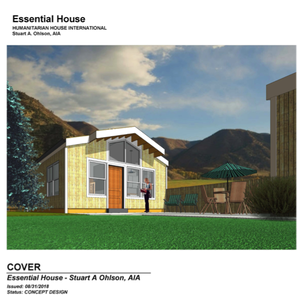 by Donna Mae Baukat, Cofounder & Executive Director of CCO Community Compassion Outreach had once believed that transitional and emergency shelter for housing people experiencing homelessness is a viable solution. With further consideration and research, we recognize that transitional housing is not a permanent solution to homelessness and poverty. The Problem In Our View Transitional and emergency shelters are meant to provide temporary spaces where a person may reside for a limited time. Most shelters and transitional housing have become unsafe for certain individuals in the homeless population. They report crowded facilities, strict rules, and requirements that exclude people with alcohol on their breath or those who have certain criminal backgrounds -- even in extreme weather conditions. CCO is aware that transitional housing is insufficient in La Plata County, and there are not enough beds for people to be sheltered in severe winter weather. The key to exiting homelessness is permanent housing. Temporary housing is where limited periods of occupancy may be up to two years, and it leaves people in the heightened "suspense-mode" -- anxiety and worries are common when uncertainties are ever present. Questions and fearful thoughts may impair a seemingly stable situation for most people residing in transitional or emergency shelters/housing with many questions:
Permanent Housing Ends Homelessness! The HHI Essential House is a permanent and affordable home for people with low-income. Anyone earning less than 80% of the Area Median Income (AMI) and not more than 120% of AMI is qualified to own one of CCO's housing of choice, "Essential House". click here to view the home We are making it possible to own a two bedroom house at approximately $50,000-$60,000. We surveyed nearly 18 individuals from the homeless population in La Plata County who are regular clients at Manna Soup Kitchen. They are the young middle-age people who have jobs and are on Section 8 wait list for housing. Some have been on the list more than two-to-three years. Others have old age pensions, are not quite age 65 to qualify for Social Security, and many if not most of them have disabilities. The community of La Plata County and the City of Durango are being asked to recognize at least 25 persons in the winter have resided in tents for many years in nearby wooded mountainsides. They are the regulars who have families and jobs here. In the summer, there are over 300 people living in tents or in vehicles during warmer months for seasonal jobs that serve tourists. Land Acquisition #1 Priority CCO is working on land acquisition. When we acquire adequate space for a Village of Hope, we plan on making a section of the parcel available to tent dwelling people who are experiencing homelessness (a project in development stages). We are actively seeking a minimum of five acres to create a village setting with community building, sufficient parking spaces, children's playground, and open space to develop raised gardens and pathways. If you're interested in supporting the land acquisition priority, please contact Donna Mae here. Homeownership Opportunity Our clients will be will be expected to attend a mortgage ownership class at HomesFund in Durango. They are experienced educators and have assisted 19 people with downpayment assistance to first-time homeowners. Click HomesFund for further details. CCO's associate real estate broker and a mortgage banker will review applications from people who wish to purchase an ESSENTIAL house. Depending on how much house a person is qualified to buy, CCO in conjunction with Baukat Enterprises, LLC, may provide a larger size house to match a household with the right house, such as for a family of four or more children. HHI architect is flexible to build custom homes as required. At this time, we are developing the Homeownership Program in the Village of Hope, proposed as an Home Owners Association (HOA). For further information, please contact us here. Email Inquiry to: [email protected]. We are pleased to announce Community Compassion Outreach, Inc., has received the IRS determination letter in which we have been given nonprofit status under the public charity classification of 501(c)(3) Tax Exempt Status.
CCO is preparing its website to accept tax deductible online GIVING! In the meantime, please feel free to contribute by check or money order to: COMMUNITY COMPASSION OUTREACH. Mail to: 255 E. 11th Street, Durango, CO 81301. For further information, please feel free to contact us at (970) 236-2313 ext. 1, or click here. POTLUCK Sunday, September 23, 2018, at 255 E. 11th Street, Durango, CO.
Join us for our first meeting of representatives and organizations who wish to learn about the Low-Income Housing for people paying more than 30% of income on rent. It takes a community to build a Village of Hope for low-income workers and people in homelessness. SIGNUP AT EVENTBRITE. Village of Hope Is in planning stages for Phase One with ten (10) units of 1, 2 & 3 bedrooms, furnished with all utilities. Every small house in the new village is dedicated for people in low-income and in Homelessness or are on the brink. The reason for only a small number of units is to create a prototype community to the Southwest Colorado region in a well-organized, self-governed with CCO oversight and management, and to include social services.
A community building will be constructed after all units are completed. It will have a commercial kitchen, conference and meeting rooms, space for two computers and an office for the site manager. CCO, Inc., advocates for affordable and available housing to serve those who cannot access affordable housing in La Plata County:
Persons agreeing to rental agreement, rules and regulations should prove length of homelessness. Small House designed for persons in poverty and homelessness will be available as soon as we identify a location for the first Phase One. . . Phase One CCO reached a Milestone in May 2018 with a dignified insulated lockable safe Small House for people in homelessness and poverty. The Humanitarian House International (HHi) NonProfit in Denver, CO, redesigned an experimental HHi House of PVC Tubing -- assessed by the Engineering Design and Practice ENGR 315 during 2018 Spring Semester. Students were under the tutelage of Dr. Don May, Professor of Engineering at Fort Lewis College, Durango, CO. A Final Report was submitted on April 30th to CCO and HHi as agreed in an agreement to collaborate with Fort Lewis College. The Collaboration shared specific responsibilities according to the November 2017 agreement.
Sponsor the cost of a small house..... If you would like to sponsor the cost to build one or more small houses, please contact us. Contact “Donna Mae” Baukat for further information. Private or county property to establish the first Village of Hope in the county. . . Somewhere in La Plata County, within ten miles from the City of Durango, a minimum of one acre is awaiting a village for sustainable living. CCO Board of Directors and volunteers identified an unmet need for small houses with great insulation and heating. CCO’s goals include scattered sites throughout the County of La Plata in which people may be housed separately and according to celebrating recovery, victims of domestic violence, families with children, and adults dealing with substance abuse. Social workers will be able to meet individuals and families in their small home. Volunteers will coordinate job skills training, workshops and seminars according to the capacity of the villages. This vision is ever-growing with each passing day. Housing, affordable and available to people of low-income, contributes to reduction of panhandling and homelessness by getting them off the street and back into a small community of people who are also experiencing homelessness. Who can stop the flow of Homelessness in our region? Community Compassion Outreach is starting with small houses in villages of 10, 20, and 40 units with running water, power and sewage. Five acres will help make this possible. |
Our MissionOur Mission is to assist persons to survive and to exit homelessness with a viable housing solution!. Archives
October 2022
Categories |
Since December 15, 2023, we are at:
21738 US-160, Durango, CO 81303
Mailing Address: 10 Town Plaza #315, Durango, CO 81301
21738 US-160, Durango, CO 81303
Mailing Address: 10 Town Plaza #315, Durango, CO 81301
970-236-2313
Ph | Voicemail
9:00am-5:00pm
Meet staff by
APPOINTMENT ONLY
E-Mail: [email protected]
Hours
In-Person Meetings by Appointment Only:
- NEW! SAFE TALKS IN RECOVERY (STiR is a voluntary group meeting)
- Tuesdays, Wednesdays & Fridays - 9:00 am to 4:30 pm RESST Program with snacks, beverages and lunch provided -- We close our doors at 4:30pm to allow our staff to leave at 5:00pm. Thank you for your patience!
- SATURDAYS -- COFFEE & CONVERSATIONS is moved to our new location: Doors open 11am to 2pm with hot lunches served at Noon to 2:00pm -- we will close our doors at 1:30pm to allow our volunteers to clean up. Thanks for your patience!
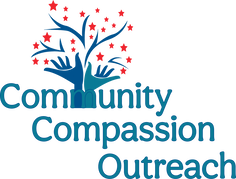
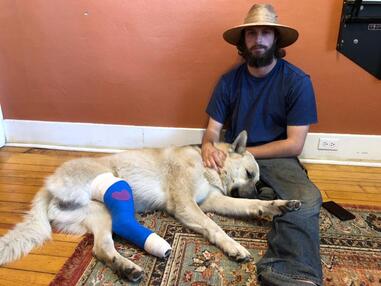
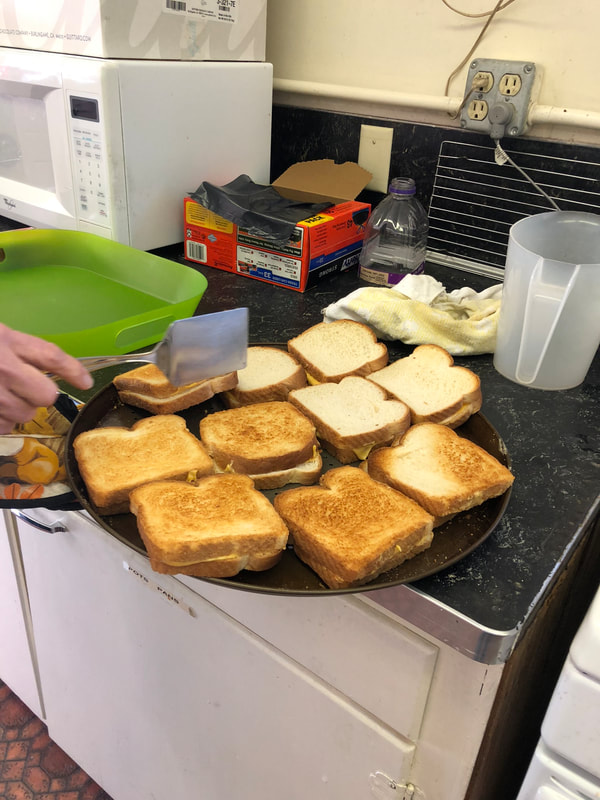
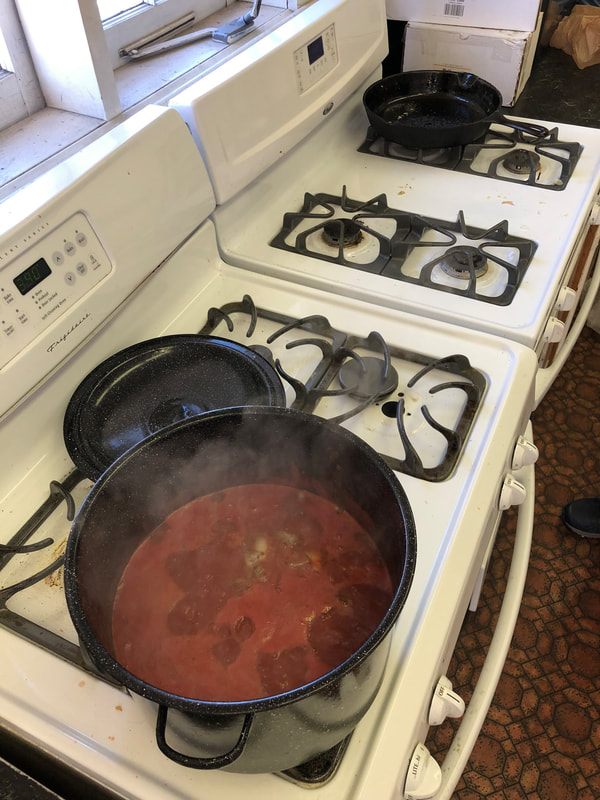
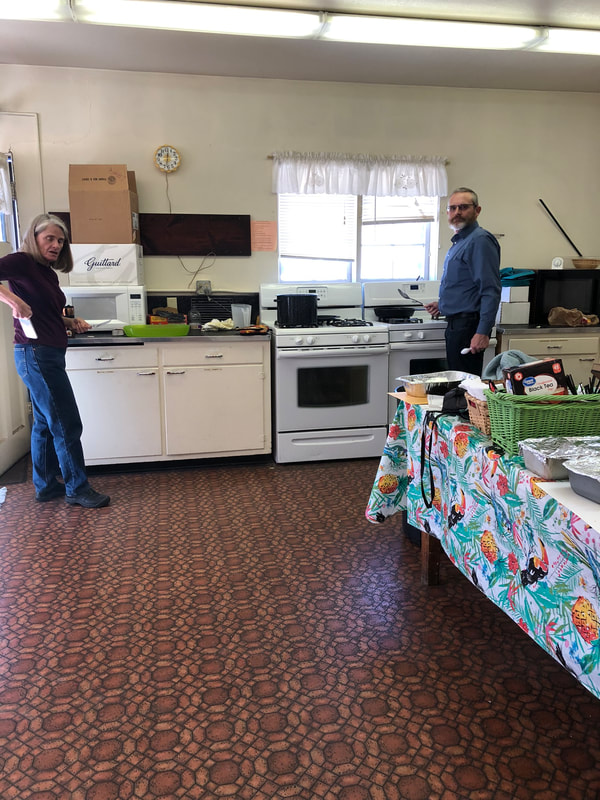
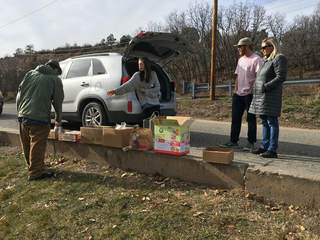
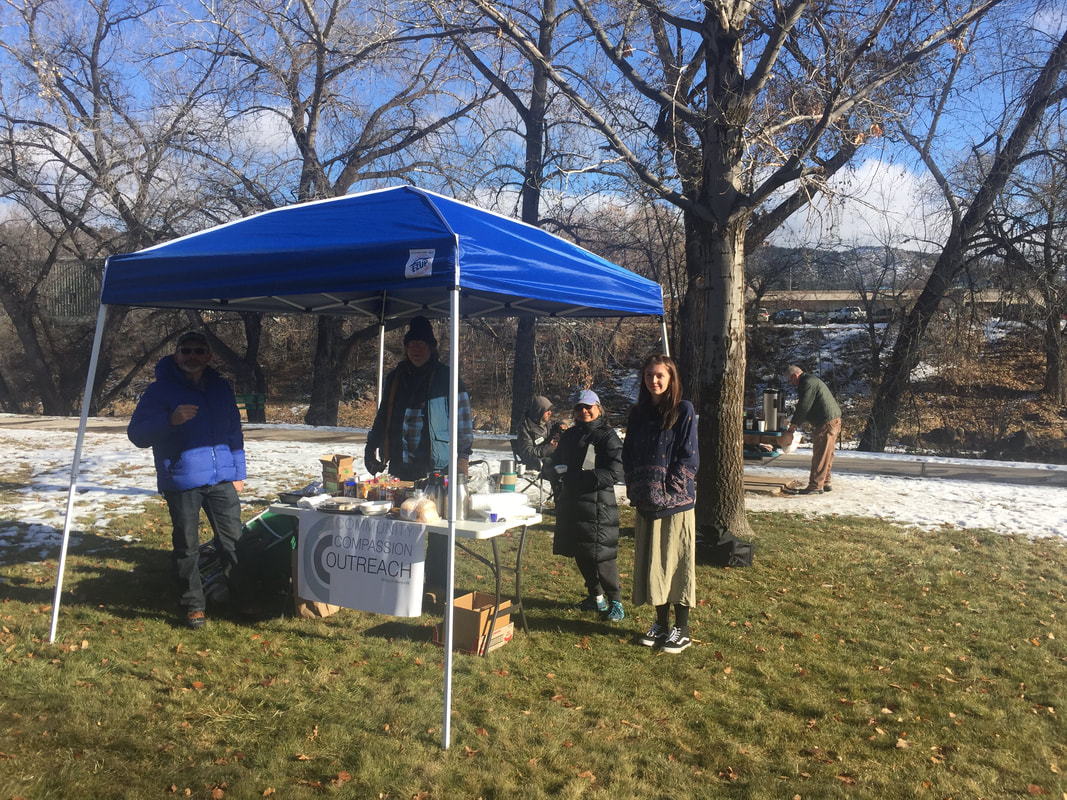
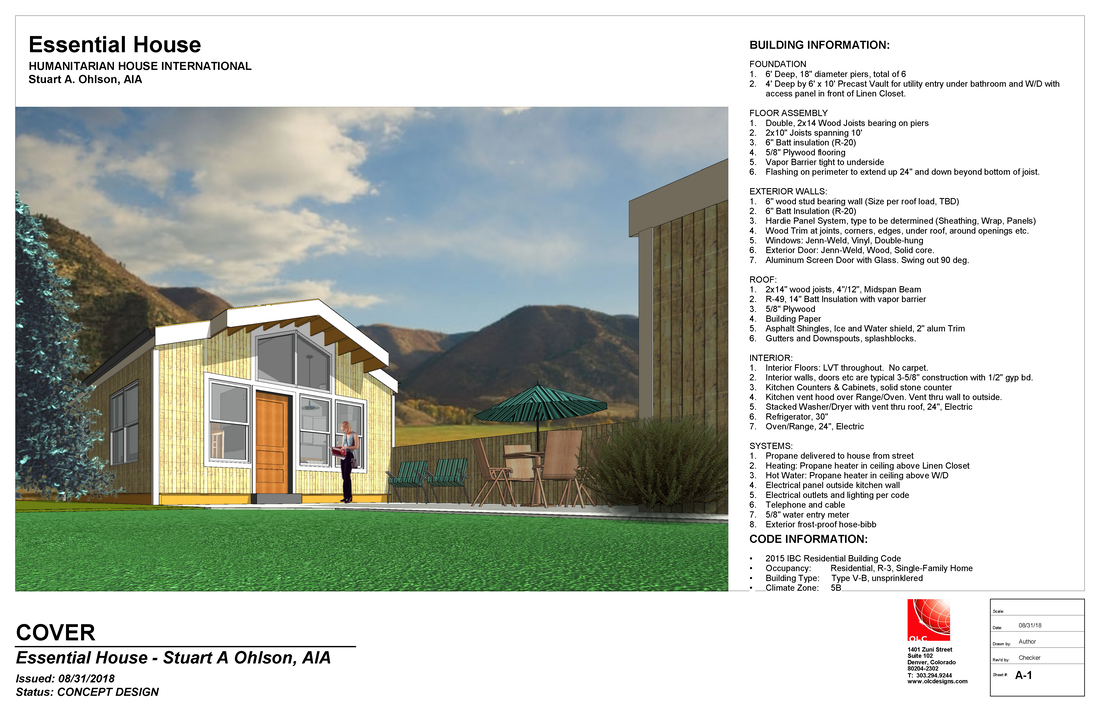
 RSS Feed
RSS Feed
